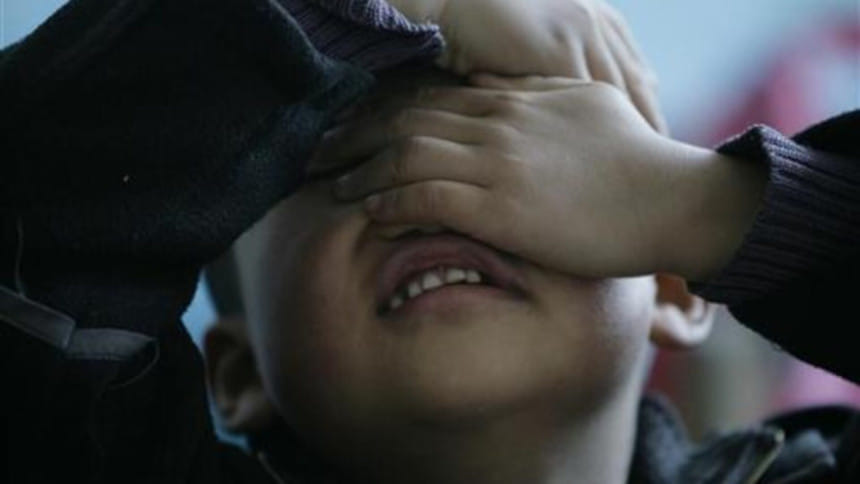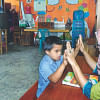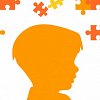Our society and policy have failed mothers who care differently

Caring is beautiful. But when the burden of care disproportionately falls on one person's shoulders, it becomes exhausting. We live in an ecosystem that is neither structured for women nor for people with different needs. For a mother of a child who faces barriers owing to a disability, this ecosystem can translate into a triple burden: unpaid care and domestic work, paid employment, and the extra challenges of caring for a child with additional needs.
Now that Bangladesh has decided to formally recognise women's unpaid care and domestic work in its GDP calculations starting next fiscal year, it is a critical moment to discuss the intersectional issues we so often overlook.
Unpaid care and domestic work encompass household tasks, caring for family members, and maintaining a household. While all genders contribute to such work, in the average Bangladeshi household, gender roles remain stark. According to the Bangladesh Institute of Development Studies (BIDS), women perform seven times more unpaid care work than men.
This labour is invisible both to the public and the economy. Yet, paradoxically, it has long been normalised and even romanticised. BIDS estimated in 2021 that women's unpaid care and domestic work carried a monetary value of Tk 5,307 billion, 14.8 percent of GDP that year. Men's unpaid care contribution stood at only 2.8 percent. According to Oxfam, globally in 2019, this type of work would have earned women a minimum of $10.9 trillion had it been paid.
Caring for children is a major component of unpaid care work. Doing so for a child with a disability requires an entirely different level of skill, empathy, patience, and physical and mental strength. Yet, despite the challenges and importance of this care, it remains largely unrecognised and invisible.
Policy on Autism Spectrum Disorder (ASD) in Bangladesh
Autism spectrum disorder (ASD) is a neurodevelopmental condition that affects communication, social interaction, and behaviour. The Rights and Protection of Persons with Disabilities Act, 2013, recognises ASD as a disability.
According to the Act, "all government, non-government organisations, educational institutions and local authorities shall facilitate the persons with disabilities to enjoy their rights properly and conveniently, and provide necessary assistance in the implementation of the policies…". The government also committed to establishing one-stop service centres at the upazila level, accessible to all people with disabilities. These were intended to include multi-disciplinary teams offering services for children's holistic growth, parental and caregiver training, and integration with Neuro-Developmental Disability (NDD) schools.
Unfortunately, none of this has materialised. Children with ASD are barely able to access their rights to live with dignity. And their primary caregivers, often mothers, are left struggling to give them a decent quality of life.
Invisible challenges
A child's care and development should be prioritised above all. A 2017 study by Chopra and Zambelli found that the imbalance between paid and unpaid work significantly depleted care quality for children.
Yet a mother's mental health remains one of the most overlooked aspects of caregiving. The lived experiences of mothers caring for children with ASD often have a profound effect on their mental health—much more so than in families where children are without disabilities. This may be linked to the stigma they face and the multiple barriers to accessing services and support.
For low-income or single-parent households, mothers often have no choice but to work to survive. In Bangladesh, a woman's paid job is not only a question of agency or rights, but often one of basic survival. Women from low-income families form a significant part of the labour force. These women suffer from 'time poverty'—they have no time to rest. This takes a toll on their physical and mental health.
Opportunities for decent work are limited. Mothers of children with ASD are often left with almost no viable options, as few employers understand the need for flexibility. As a result, many are forced to forgo paid employment altogether.
Societal and policy support: Practical and emotional needs
The challenges faced by mothers of children with ASD are not natural or inevitable; they are the result of structured inequality. Our social systems and infrastructure are not built for disabled individuals or their caregivers.
To support children with ASD and their mothers, we must address both their practical and emotional needs. Society must shift its perception of people with disabilities. We must practise empathy, patience, and kindness—especially in public spaces—to ensure access to services without added barriers.
Family and workplace support is crucial for these mothers. Understanding their needs and the types of support required is key. Workplaces should tailor policies and create opportunities specifically for mothers of children with ASD. Families must rethink how they function—sharing caregiving responsibilities to reduce the pressure on mothers.
Policies must address these needs through accessible and affordable childcare, paid parental leave, flexible working arrangements, access to schools that can support children with ASD, and inclusive infrastructure.
Simin Ibnat Dharitree is a development professional and a gender and development specialist.
Views expressed in this article are the author's own.
Follow The Daily Star Opinion on Facebook for the latest opinions, commentaries and analyses by experts and professionals. To contribute your article or letter to The Daily Star Opinion, see our guidelines for submission.

 For all latest news, follow The Daily Star's Google News channel.
For all latest news, follow The Daily Star's Google News channel. 









Comments